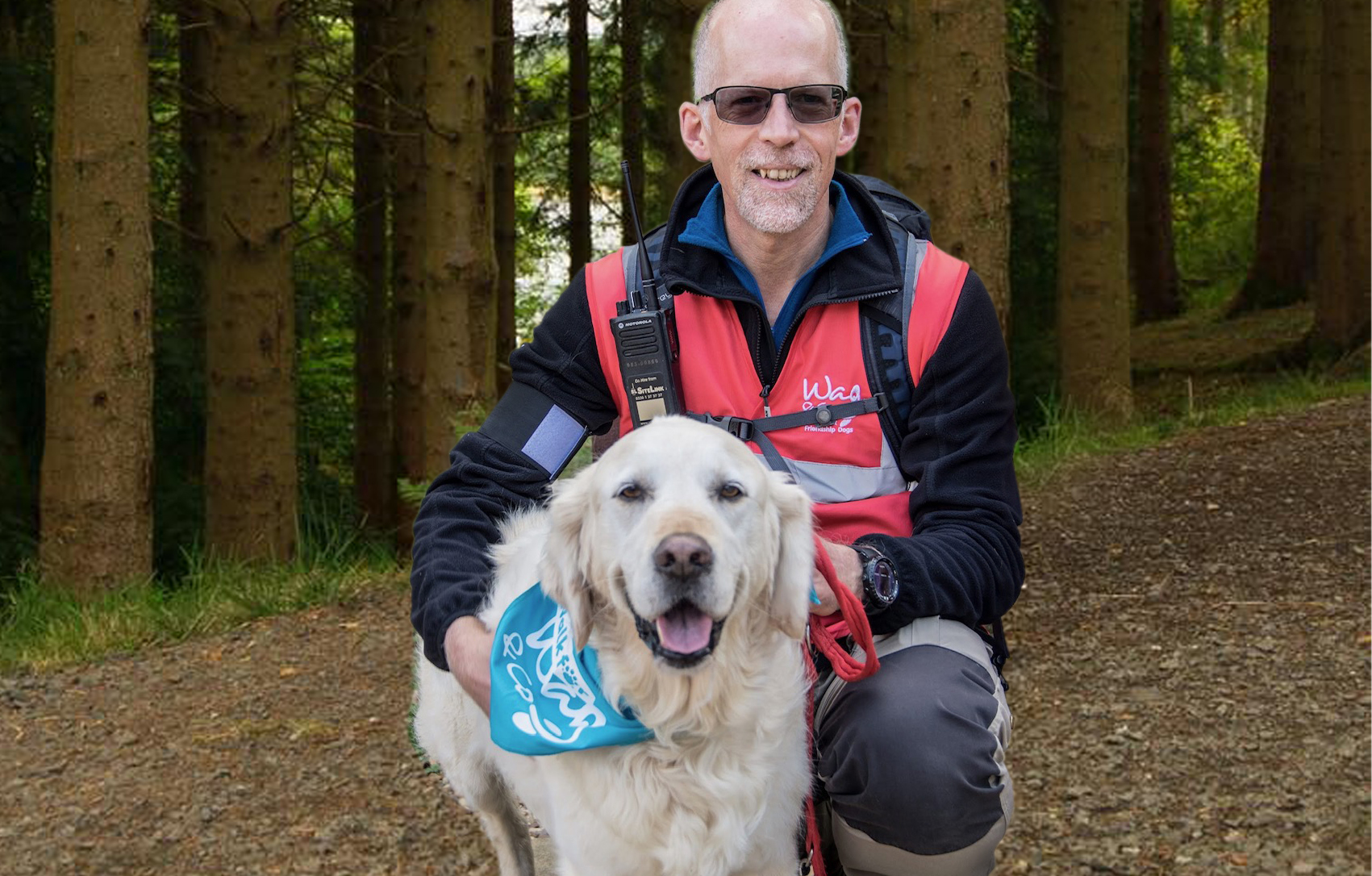Dear Tim…
Dear Tim …
Our veterinary advisor, Dr Tim Nuttall, from the The Royal (Dick) School of Veterinary Studies is always asked questions about dog health by our volunteers, and whilst he can’t answer questions about individual dogs he is really happy to comment on general dog health so we thought we’d share …
My dog seems to know where he’s going as soon as I put on his bandana? Is that possible do you think?
Absolutely. Dogs are extremely good at interpreting body language, words and other cues (e.g. collar and lead, coats, bandanas etc.). They are very good at making associations with what will happen next. Mostly this is fun for everyone – as in this example or when going for a walk etc. However, it can become a problem where there is a negative association – for example being left alone in separation anxiety, where the cues trigger fear and anxiety, or where the excitement gets too much for everyone. It can be difficult to overcome these associations and behaviours once they are established. Treatment involves trying to break up the cues and associations – examples include getting the lead out but not going for a walk, putting a coat on but not going out, going out without a coat (that’s a bit weather dependent though), and visiting the vet hospital but not seeing the vet etc. Positive reinforcement of calm behaviour and high value rewards (e.g. favourite treats) can be used to slowly change behaviour patterns. Anti-anxiety medication can help in severe cases.
My dog hates the sound of gunfire when we’re walking in the country. She shakes and tries to run home or to the car. Is there anything I can do to make this better for her?
This can be a challenging situation. Briefly, dogs have a short window in early life where they are very open to new experiences – this is why puppy walkers are so vital in the early socialization and training of Guide Dogs for example. After this window, dogs become resistant to new experiences. In addition, dogs quickly make associations with bad experiences – in this case gunfire, but it could traffic or vet visits etc. I’m not a behaviour specialist and I would strongly recommend referral to or advice from a specialist in severe cases. In outline, however, the approach is to avoid the stimulus causing the problem and then slowly build exposure with lots of praise and high-value rewards for calm behaviour. This can be a slow and difficult process. Anti-anxiety drugs can be used initially and are very useful in severe cases or where the problem can’t be avoided (e.g. vet visits or treatments). However, these should not be regarded as a long-term cure.
Why does the Wag guidance require monthly worming when my vet says 3 monthly is fine?
Worming every three months is fine for most dogs that don’t have heavy exposure to worm eggs. Vets are also taking a risk-based approach to control of internal (e.g. worms) and external parasites (e.g. fleas and ticks). This takes into account the likely exposure and risk. Reducing use of these drugs will help prevent resistance in parasites as well as their impact on beneficial insects in the environment. However, Wag dogs regularly visit very vulnerable people (e.g. elderly, disabled, with low immunity etc.). The risk is low but the consequences of passing parasites on could be catastrophic. We are therefore taking a precautionary approach and advise monthly parasite treatment (although for fleas and ticks there are some longer acting preparations). We’re keeping this under review though.

